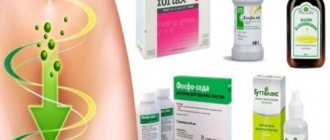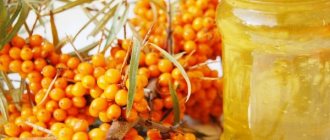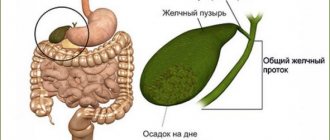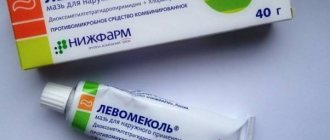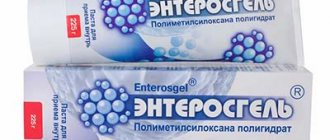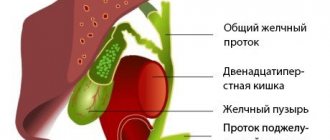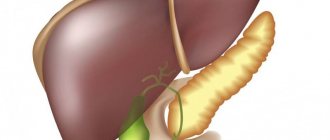Since ancient times, herbal treatment has been famous for its effectiveness; it helped relieve many diseases. In our time, traditional medicine is still famous for its usefulness. It is convenient because treatment can be done at home. Cleansing, prevention, treatment - all this is possible with the help of specially selected herbs. From the herbs you need, infusions and decoctions are prepared according to special recipes that will help get rid of the disease. The ingredients can be bought at any pharmacy in the country, and the recipes themselves are so easy that you can easily prepare them yourself. Treatment with herbs, unlike taking medications, promotes the recovery of the body much better and faster. Gallbladder disease is no exception. In its treatment, herbs with choleretic, bile-excreting and bile-thinning properties are used. The list of choleretic herbs is very large. For example, herbs that stimulate the secretion of bile are calendula, wormwood, rowan, etc. Herbs that promote the release of bile are oregano, dandelion, rose hips, etc. There are herbs that have both properties - barberry, corn, calamus, calendula. The choice of the right herb directly depends on the type of gallbladder disease.
List of useful herbs for liver treatment
Collection of herbs for the liver can include different components of medicinal plants - bark, flowers, buds, leaves, fruits, roots. Infusions, decoctions, tablets and tinctures are prepared from them for treatment and for the purpose of prevention.
List of proven herbs for liver treatment:
- peppermint;
- immortelle;
- pharmaceutical chamomile;
- dandelion;
- chicory;
- tansy;
- celandine;
- artichoke;
- St. John's wort;
- calendula.
Medicinal herbs for the liver are prescribed for fatty hepatosis, cirrhosis, cholecystitis, pancreatitis and cholelithiasis. They complement the intake of medications and accelerate recovery or remission in case of chronic diseases.
Milk thistle
One of the beneficial herbs for the liver is milk thistle. The main components are essential oils, antioxidants, flavonoids, vitamins, micro- and macroelements. Thanks to the unique natural composition of milk thistle:
- activates the synthesis of enzymes and proteins in hepatocytes;
- inhibits the flow of toxins to hepatocytes;
- potentiates regenerative processes;
- prevents the breakdown of hepatocytes.
This beneficial herb for the liver prolongs remission in chronic hepatitis, helps with alcohol and drug intoxication, damage to the body from heavy metal compounds, and plant poisons.
Immortelle
The healing properties of the immortelle herb are beneficial for the liver. This phytocomponent is prescribed for gallstone disease, hepatitis, cholecystitis and cirrhosis. Resin acids have antibacterial properties, galenic substances dilute bile and prevent its stagnation. The effect of immortelle on the affected organ:
- changes the concentration of bile components;
- reduces blood cholesterol;
- improves liver function;
- increases the tone of the gallbladder.
Decoctions and water infusions of immortelle are taken in courses, for chronic liver damage - over several years. This herb for the treatment of the pancreas and liver has a gentle effect, but is contraindicated during pregnancy, impaired stomach acidity, and hypertension.
Does celandine help?
There is no reliable evidence that the herb “celandine” has a positive effect on the condition and function of the gallbladder and liver. Moreover, it is known that when taken orally, this plant is toxic, including to the liver. In addition, toxic substances require decontamination, a process carried out by liver cells. The latter not only does not contribute to treatment, but also aggravates the course of liver pathologies.
Celandine is not a herb that treats the liver. This product has proven effectiveness exclusively when used externally for inflammatory processes on the skin - dermatitis, psoriasis.
Choleretic herbs: mechanism of action, indications for use, contraindications
A small bladder located between the lobes of the liver is an important element of the human digestive system. It forms bile - a specific secretion produced by liver cells. Its tasks are:
- enhance the activity of pancreatic enzymes and promote easy and rapid digestion of food;
- stimulate intestinal enzymes so that processed food leaves the body easily;
- have a bactericidal effect on digestion products;
- promote fat absorption.
The human body produces up to 2 liters of this liquid per day.
Photo: pixabay.com
The modern pace of life, irregular nutrition, consumption of fatty foods, use of medications, ecology, and a sedentary lifestyle lead to disruptions in the functioning of the gallbladder. The critical moment comes when bile stagnation occurs. The body will signal that there has been a malfunction of the gallbladder with the following symptoms:
- nausea and vomiting;
- nagging pain in the right side;
- yellowing of the skin and sclera;
- change in the color of urine and feces (darken);
- heartburn;
- chills.
To avoid a crisis and the development of cholelithiasis (accumulation of stones in the gallbladder and blockage of the outlet channel for bile), carry out prevention. Choleretic agents, which have been used by traditional medicine for centuries, will help with this. These are herbs that stimulate the functioning of the liver and gall bladder, help increase the outflow of bile from the bladder, as well as medications created on their basis.
Photo: pixabay.com
Choleretic preparations affect the liver and gallbladder in the following way:
- Relieves spasm of the choleretic ducts. This improves the circulation of bile and its discharge.
- They activate their work, so the secretion is released faster into the duodenum.
- Stimulates the liver's production of bile.
- Eliminate stagnation of bile (liquefy it and evacuate it).
When should a choleretic agent be used? Direct indications for the use of choleretic preparations are:
- inflammation of the gallbladder (cholecystitis), in which bile stagnates and pathogenic microflora develops in the intestines;
- disorders of gallbladder motility (dyskinesia);
- inflammation of the pancreas (pancreatitis). In this case, the gall bladder enzymes do not enter the intestines, but act on the pancreas (bile is thrown into the pancreatic ducts and destroys it);
- damage to the small intestine by Giardia - a specific type of worm.
Photo: pixabay.com
In these cases, choleretic agents will have a beneficial effect on the digestive tract, relieve stress on the pancreas, and create an environment destructive for parasites.
However, do not rush to brew a choleretic mixture, since these herbs also have contraindications. They will do harm if:
- narrowed bile ducts (congenital defect or consequences of the development of diseases of the liver, pancreas or duodenum);
- colic is acute;
- the acute phase of cholecystitis occurs;
- there is toxic liver damage;
- the person is infected with hepatitis;
- Stones have formed in the gall bladder.
Self-medication and the use of a decoction of choleretic herbs for the diseases listed above will lead to an exacerbation of symptoms: the pain will become unbearable, the temperature will rise, obstructive jaundice will develop, liver function will be depressed or the process of its decay will accelerate.
Therefore, resort to treatment with herbs that affect the gallbladder only after consulting a doctor and on his recommendation.
Herbal medicines for the pancreas
Timely treatment of the liver and pancreas with the specified list of herbs helps to avoid diabetes and chronic pancreatitis:
- corn silk;
- pharmaceutical camomile;
- wormwood;
- yarrow;
- immortelle;
- tansy.
Such medicinal herbs for the liver and pancreas are used separately or as part of herbal mixtures, where the individual components potentiate each other’s properties, strengthen the immune system, and act with minimal risk to health.
Medicinal plants for the gallbladder
Choleretic herbs help with cholecystitis, cholangitis, hepatitis and bile stagnation. When choosing a herb for the liver and gallbladder, the effect of bile secretion is taken into account. Effective phytocomponents:
- corn silk;
- rose hip;
- calendula;
- pharmaceutical camomile;
- peppermint.
Before purchasing choleretic herbs for the gallbladder and liver, it is important to study contraindications and minimize the risk of side effects. For example, in case of acute poisoning and viral hepatitis, such treatment is prohibited.
Choleretic fees
Nowadays choleretic preparations are quite popular. Due to the fact that each herb has its own beneficial properties, in order to achieve the desired effect in treating a disease, you should not take each one separately, but prepare a herbal mixture. This may not always be convenient, so you can buy ready-made choleretic preparations in pharmacies. They are numbered from one to three. It is contraindicated to take these preparations only in cases of allergies to any of the herbs included in them. Choleretic collection No. 1 includes mint (pain reliever), coriander (has a choleretic effect), immortelle (improves bladder function) and three-leaf cotton wool (relieves inflammation). Choleretic collection No. 2 differs from No. 1 only in the presence of yarrow (relieves spasms, anesthetizes, has a choleretic effect). No. 3 consists of tansy (relieves inflammation), chamomile and calendula (helps remove bile), mint and yarrow (choleretic agents for bile stagnation). Knowing the properties of each herb, you can understand which of the three herbs is right for you.
Composition of liver preparations for organ cleansing
Liver cleansing is even carried out for prevention, to strengthen the immune system and improve the health of the body. With complex treatment, the attack stops faster. The herbal mixture contains herbs for cleansing the liver, such as:
- liver collection: corn silk, immortelle, anise, tansy, knotweed, immortelle, dandelion, fennel;
- liver tea: bearberry, St. John's wort, bird knotweed, corn silk, rose hips;
- “Alphabet” tea collection: chaga, nettle, motherwort, yarrow, hillwort, milkwort;
- monastery collection: fennel, immortelle, elecampane root, milk thistle, string, calendula, chamomile, peppermint.
The choice of a pharmaceutical liver collection for cleansing with one or another composition of herbs depends on the diagnosis, chronic diseases, and a tendency to allergies to plant components.
What will help restore the liver after alcohol?
The liver suffers from alcohol intoxication. Ethyl alcohol destroys hepatocytes and interferes with the normal functioning of the organ. Potential complications include cirrhosis, fatty hepatosis, and acute alcoholic hepatitis. When choosing a herb for the liver after alcohol, the degree of poisoning and the body’s reaction are taken into account. Here are some herbs that cleanse the liver:
- water infusion of flaxseed;
- milk thistle tea;
- tansy decoction;
- chamomile tea;
- decoction of corn silks.
In addition to herbs, herbal medicines are recommended to restore the liver. Among the latter are Karsil (from milk thistle), “Liv.52” (with chicory and yarrow), Allochol (based on bile). With timely treatment of the liver with herbs, the best remedies work after the first dose, but only the full course gives the effect.
How to take herbs for prevention
For bitterness in the mouth, poor appetite, heartburn, constipation, impaired metabolism and other symptoms of internal imbalance, preventive cleansing of the body is carried out. If you know which herbs are useful for liver diseases, such unpleasant symptoms will subside after 5-7 days. Proven health recipes:
- Prepare clean burdock leaves and squeeze out the juice. Drink 1 tbsp. l. Before each meal, you can first dilute it with water. Preventive course – 1-2 months.
- Grind chicory, 1 tbsp. l. powder, pour 1 cup of boiling water, boil. Cool covered, strain. Take 75 ml orally three times a day. Preventive course – 2-3 months.
These herbs also help with liver disease, but their concentration in medicinal preparations varies. Before deciding on the herbal composition, it is important to eliminate the risk of allergies to individual components.
Preparing for cleaning
According to homeopaths, herbal infusions and teas are the most affordable and hypoallergenic method of preventing many liver diseases. Before the cleaning procedure, it is important to familiarize yourself with some recommendations:
- During the period of manipulation, it is necessary to exclude any toxic effects on the liver. This primarily concerns the consumption of alcoholic beverages, smoking and the use of medications.
- It is necessary to adjust the diet - exclude fatty, smoked foods, and you should also not eat processed foods, chips or drink store-bought carbonated drinks.
- The power supply system is fractional, i.e. You need to eat food at least five times a day.
- The first meal is no earlier than 10-00.
- 7 days before the procedure, you need to switch to a vegetarian menu, give up tea and coffee in favor of green tea and vegetable juices (it is best to drink beetroot and carrot juice).
- Sugar should be replaced with honey.
Experts recommend carrying out the procedure in the summer, when any vegetables, fruits and berries are available. If possible, you should start every day with light exercise. To speed up metabolic processes and normalize the outflow of toxins from the body, you need to visit a bathhouse or sauna every week.
The liver cleansing process must be completed. Otherwise, the treatment will be ineffective. The duration of liver cleansing is one month. This is the optimal period: during this time the cells have time to completely cleanse themselves.
Advantages of medicinal herbs
To prevent diseases and cleanse the liver, plants such as St. John's wort, wormwood, horsetail, immortelle, celandine and others are used. Infusions and decoctions of various herbal preparations are often used, which sometimes have a more effective effect than individual herbs. The therapeutic effect of herbs is as follows:
- They clear the bile ducts
- Relieves inflammation;
- Improve metabolic processes;
- Have an analgesic effect;
- Cleanse the liver of parasites.
Turmeric
Turmeric is also known as a type of spice; it is one of the best products for removing toxins from the body (they usually accumulate in the blood and liver).
The active compound called curcumin has anti-inflammatory and antioxidant effects. It restores the health of the liver and ensures that it performs its functions properly.
Antioxidants are involved in the process of blood filtration and help eliminate harmful elements from it.
Thus, turmeric is very useful for disorders of the circulatory system, as well as for disorders of the bacterial flora in the body.
Regular consumption of turmeric has been proven to help cleanse the liver and slow down the growth of abnormal cells.
Feel free to add it to smoothies, soups, salads and many other recipes.
Disadvantages of Herbal Treatments
When using herbs, we must not forget that they can contain not only beneficial substances, but also poisonous ones. When compiling a collection, you must strictly observe the proportions. When taking a herbal remedy, you must follow the indicated dose and duration of use. For example, St. John's wort is used as an effective medicine for such serious diseases as jaundice, pyelonephritis, gastritis due to the content of essential oils, tannins, vitamins, nicotinic acid and many other substances. However, it cannot be used during pregnancy; it increases blood pressure, causes allergies in some people, and can reduce potency in men. Long-term use of its infusions can have a reverse effect on the liver.
Using herbs to cleanse the liver. Recipes for preparing infusions and decoctions
To cleanse the liver, infusion and tea from individual plants are used. Herbal tea is also used. Various parts of plants are used: flowers, leaves, stems, seeds and roots. Before starting liver treatment, it is necessary to empty the intestines to facilitate the removal of toxins. In addition, the cleaning procedure should be carried out after warming up and relaxing in a hot bath. Then the liver reacts faster to taking herbal preparations.
Infusions and decoctions should only be used fresh. They should be stored in the refrigerator for no more than 2 days.
St. John's wort decoction for liver cleansing in case of cholelithiasis
For 10 g of herb, take 1 glass of boiling water. The mixture is kept in a water bath for half an hour, and after cooling it is added with water to a volume of 1 cup. Use before meals three times a day for 2 months. After a 2-week break, treatment is repeated;
Liver cleansing with calendula infusion
An infusion is prepared from flowers. Add 40 g of plant to 1 liter of boiling water. Infused and drunk 3 times before meals for 3 weeks. This method achieves washing of the bile ducts and eliminates possible inflammation. Then an additional cleanse is carried out with a mixture of olive oil and lemon juice to remove gallstones;
Herbal tea for liver cleansing
The herbal mixture is obtained by mixing equal quantities of the following herbs: yarrow, immortelle, wormwood, dandelion, mint, nettle, celandine and plantain. Corn silk and rose hips are also added there. 4 tablespoons of this collection are poured into 0.5 liters of boiling water (you can make an infusion in a thermos). Taken in several doses in one day. For diarrhea, the concentration can be reduced, and for constipation, you need to take a little more herb;
Infusion of agrimony and milk thistle
These two infusions are taken in turn. They help not only in cleansing the liver and preventing diseases, but are also used to treat hepatitis and cirrhosis. In 3 months it is possible to radically improve the condition of the liver. To prepare agrimony infusion, take the flowers of this herb and add water (1.5 cups per 1 spoon of flowers) and brew for half an hour. The infusion is filtered and drunk 3 times before meals. Take it for 3 weeks, then give the body 1 week of rest. Then take the same infusion of a mixture of agrimony and immortelle (3:2). The last stage of treatment is to take a tincture of milk thistle leaves with vodka (add 1 glass of vodka to 1 liter of juice from milk thistle leaves). Take 1 spoon of tincture before meals. You can take dry crushed milk thistle seeds.
The use of folk remedies for liver cleansing should be approached with caution. If you seriously suspect a disease of the liver or other organs, you should definitely see a doctor, undergo an examination, and seek advice about the possibility of cleansing with herbs. Excessive use of herbal remedies and their improper use can lead to complications in the functioning of the kidneys, liver, heart, and gall bladder.
Herbs for biliary dyskinesia
GIB is a disease that disrupts the function of the gallbladder, resulting in impaired bile secretion. Quite useful herbs for this disease include peppermint, cudweed, valerian and elecampane roots, sage leaves, and calendula flowers .
Elecampane and marshmallow roots should be grated on a fine grater. Take them 10 grams each. Next, take 15 grams of calendula and 10 grams of chamomile. Mix it all and add water. Half a liter of water per two tablespoons of the mixture. The broth should be boiled over low heat for about five minutes, then let it brew and strain. Drink warm three times a day half an hour before meals. The course lasts 2-3 weeks.
Tincture of plantain, calendula, mint, sage, caraway, rose hips, raspberry leaves and cinquefoil. In total, 15 grams are taken, in addition to plantain, you need 30 grams, and it’s all mixed. For two tablespoons - half a liter of boiling water. The mixture is infused for 3-3.5 hours, it is better to cover the dishes. Next, strain through cheesecloth and take 150-200 ml warm 40 minutes before meals. It is best to take the tincture 2-3 times a day.
Who said that it is impossible to cure severe liver diseases?
- Many methods have been tried, but nothing helps.
- And now you are ready to take advantage of any opportunity that will give you the long-awaited well-being!
An effective treatment for the liver does exist. Follow the link and find out what doctors recommend!
|
|
|
|
|
|
|
|
|
|
|

